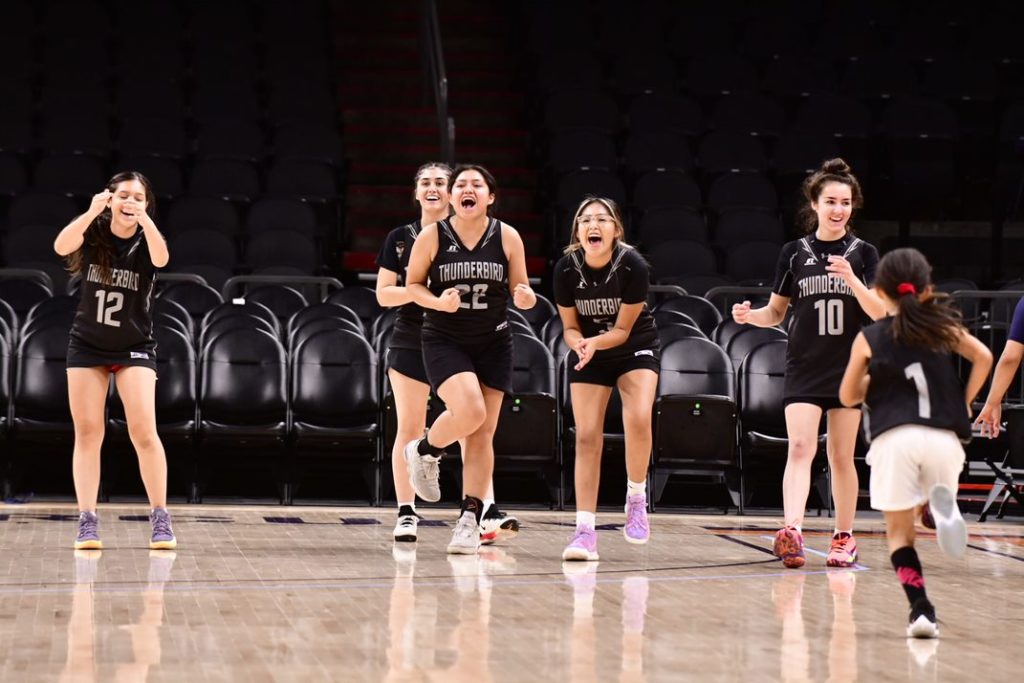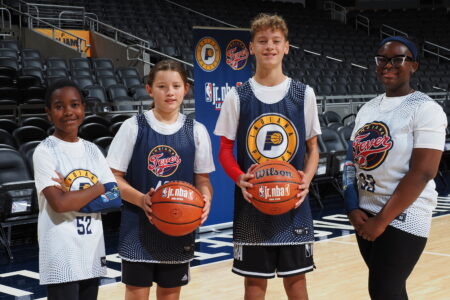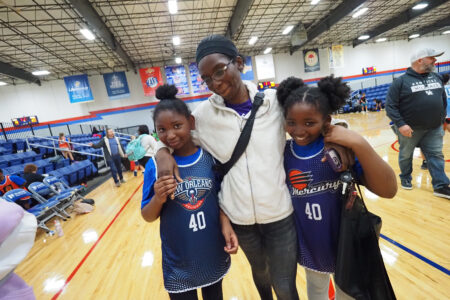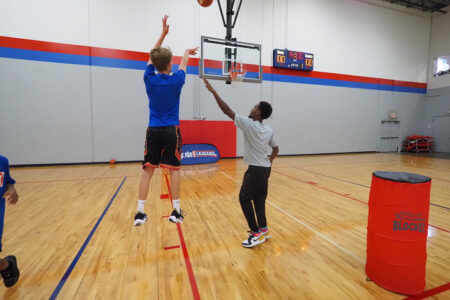Series: Improve Your Mental Game—Self Confidence
11 July 2022
We’re covering the Jr. NBA and NBA Academy’s Next Level Mentality program, a 10-part series curated from mental health performance coaches in the NBA and WNBA that’s designed to help youth athletes improve their mental approach, and individual and team performance.
Kids are constantly learning new skills, whether it’s at home, in school, or during sports. And with these new abilities, they’re also acquiring the self-confidence to use them.
While there are a lot of factors that contribute to success in sports, one of the most important is self-confidence—being able to trust in your own capabilities and bouncing back when you’re not successful.
In this article, we break down the importance of self-confidence and explain three ways you can help your child with their own, according to expert mental performance coaches in the NBA and WNBA.

What is self-confidence?
It’s an attitude—one that plays a big role in your daily life and can help you experience higher levels of happiness. Think about it: when you have healthy self-confidence, you also have a higher self-esteem. You’re able to produce positive emotions, concentrate better, and worry less. Most importantly, when you feel confident, you can pursue challenging goals.
Bottom line: the earlier your child develops self-confidence, the more likely they are to thrive in learning environments.
But, like everything in life, it’s something you need to practice daily in order to improve. Here are a few ways to develop self-confidence.
3 ways to develop self-confidence
Think confidently
When it comes to your child reaching their full potential, positive thoughts are essential. If they’re having moments of self-doubt, help them shift their negative thoughts into positive ones by reminding them that their best is good enough. You can also work with them to visualize what it would be like to meet their goals. According to expert mental performance coaches in the NBA and WNBA, visualizing your goals can help you achieve them.
Act confidently
Our thoughts, feelings, and behaviors are all connected. In other words, the more confident you act, the more confident you’ll feel. An easy way to help your child act confidently is to talk about their body language. Shrugged shoulders, crossed arms, head down—none of that exudes confidence. Instead, keep that chin up and head held high!
Respond confidently
Remember that one important aspect to building self-confidence is rebounding after failure. First, help your child understand that mistakes happen. Accept and own these feelings, rather than suppress them, and have your child make a plan to move forward. Then, have your child take a moment to self-reflect. We like to do this through a process called centering—find a steady physical position, with your weight evenly distributed between your feet, and practice deep breathing. When centering, be sure to clear your mind of negative self-talk, and focus your thoughts on actions you can control. Breathe in, breathe out, stay positive.
To learn more about Next Level Mentality and view the nine other guides, visit Jr. NBA’s website.
*By clicking the link, you’ll be redirected to Jr.NBA.com. This site has its own Privacy Policy and Terms of Use that you agree to when you visit the site.







